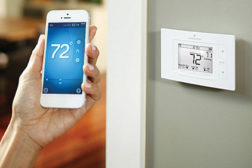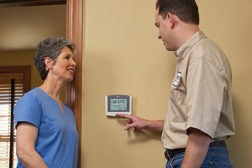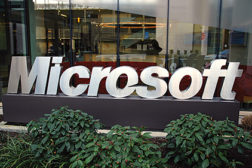Home » smart homes
Articles Tagged with ''smart homes''
Consumers Can Directly Control All Devices in a Home with One Remote Control
Read More
On the Way to Safe and Secure Smart Homes and Buildings
Researchers Are Looking to Prevent Hacker Attacks
October 6, 2014
Wi-Fi Thermostats Transcend the Market
Sophisticated Products Give Users Intelligent Control from Anywhere
Read More
Sept. 9, 2014: Home Automation Firms Join ‘Works with Nest’ Program
Control4, Crestron, Remote Technologies Inc., and Universal Remote Control Now Work with Nest
September 9, 2014
Sept. 8, 2014: Lowe’s Survey Finds Most Americans Favorable Toward the Smart Home
Fifty-Two Percent Feel That Having a Smart Home Is at Least Somewhat Important to Them
September 8, 2014
Direct Energy Partnership to Bring Smart Home to Texas Customers
Direct Energy Will Offer Smart Home Starter Kits from SmartThings
September 1, 2014
Aug. 25, 2014: Samsung to Acquire Smart Home Company, SmartThings
SmartThings Allows Homeowners to Monitor, Control, and Automate Their Homes from Wherever They Are Through a Single App
August 25, 2014
Home Automation Products Gaining HVAC Industry Traction
Ease of Use, Options Improving as Prices Start to Come Down
Read More
Contractors in Charge of Surging Home Automation Market
Listening, Offering Options Help Contractors Close a Sale
Read More
HVAC Industry Cautious About Microsoft Partnership
Joint Project Supports Home Automation Software Startup Companies
Read More
Copyright ©2024. All Rights Reserved BNP Media.
Design, CMS, Hosting & Web Development :: ePublishing








